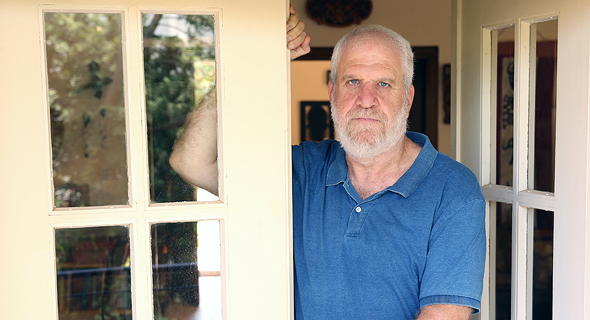Israel’s Tribal Web Campfire
Israeli researcher Sheizaf Refaeli tracked the digital footprints of a thousand Israelis for a month. The results are both surprising and troubling
10:1617.08.18
It is customary to identify technology researchers as either tech-pessimists—those who see a world of danger in each new technological advancement—or tech-optimists, who believe technology could help make our world better. Professor Sheizaf Rafaeli, director of the Center for Internet Research at the University of Haifa in northern Israel, is an extreme optimist. “Utopist, even,” he told Calcalist in a recent interview.
For daily updates, subscribe to our newsletter by clicking here.
“To all who say that Mark Zuckerberg is the devil and that the world is heading towards certain doom, I say that in any given moment I would rather trade places with my grandchildren than with my grandmother. It is clear to me that my grandchildren are going to have it much better than she did.”

Sheizaf Refaeli. Photo: Elad Gershgorenצילום: אלעד גרשגורן
During a one-month period, between October 15 and November 15 in 2017, Rafaeli collected the digital footprints of 1,000 Israelis, documenting each digital action they made. We all leave behind a trail of digital footprints, and when collected, they give a clear picture of the type of people we are. As his test subjects paid their bills online, commented on a Facebook post, looked up public transit timelines, and searched for their symptoms in online medical advice forums, Rafaeli, along with his team of four researchers, took notes. The results, based on more than two million documented digital actions, were edited together into a report titled “Innovative Approach to Measuring the Digital Gap in Israel,” which was published in July.
The problem of digital gap revokes the idiom that you can lead a horse to water but you cannot force it to drink. Most people own a smartphone or otherwise have access to a computer, and therefore to the vast pool of information on the web, but many simply do not “drink.”
Rafaeli wants to shine a light on the reasons why the internet has not lived up to its full potential of serving as the ultimate equalizer. “The point is not to buy more computers that will end up unused, but to make sure these computers offer the right content,” he said. “If people still don’t get to this content, we need to understand the socio-demographic gaps that cause certain people to stay behind, and deal with them. Underusing the internet is the new type of illiteracy, and we must eradicate it.”
Looking at patterns of internet use, Rafaeli’s research found distinguishable gaps between female and male users, between Israel’s Jewish and Arab, Orthodox and secular, urban and peripheral, and wealthy and poor populations. Rafaeli and his team discovered that on average, male users visited 33% more websites than female users. Hebrew-speaking users visited more than twice the number of websites visited by Arab-speakers. Geographically, the gap was even wider—people residing in Israel’s urban center visited five times the number of websites those leaving in Israel’s peripheral towns did. According to the report, people in Tel Aviv used the internet for medical, banking, and education purposes much more than those in Israel’s south and north.
The researchers also found that young, low-income males with limited education are the most ardent users of gambling sites. Older low-income men and women with limited education use the resource of the internet least.
People with 12-year education tended to visit primarily online forums, gambling sites, websites related to children, and YouTube. People with higher education visited real estate websites, used the internet to research social rights, and visited more news and media sites.
Rafaeli hopes that the data his team gathered could help banks make financial management information more accessible to lower-income and lower-education users, and that organizations like the National Insurance Institute of Israel could get a better understanding of the types of benefits people are most interested in—and least likely to take advantage of. Another way organizations and businesses could benefit from the data is by better designing websites for the users most likely to use them. For example, Rafalei’s team found that Israeli women are three times more likely to visit health-related sites than men.
One of Rafaeli’s most surprising discoveries had to do with the web surfing habits of Jewish Orthodox men. Religious leaders have criticized and acted to limit the internet use of members of Orthodox communities, but the new research shows that within strict guidelines, Orthodox men are some of the most prolific web users. They visit media sites at a rate 2.5 times higher than secular men, visit online forums 2.6 times more, and go on YouTube 2.3 time more.
Related articles
While a lot of money has already gone to schemes designed to narrow the digital gap, according to Rafaeli the focus should shift from providing more internet access to providing tools to better use the web. Programs like Computer for Every Child are favorites of politicians, he said.
“You have to figure out how to use the technological access to better serve vulnerable populations.”



